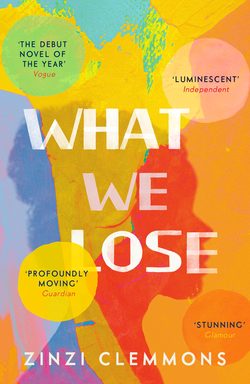Читать книгу What We Lose - Zinzi Clemmons - Страница 14
ОглавлениеMost of my family lives in or around Sandton, known as the richest square kilometer in Africa. It is a suburb of Johannesburg, home to luxury malls and complexes of mansions so heavily guarded you can’t even see their street signs unless you’re granted access. Sandton lies a forty-minute drive from some of the poorest townships in the country, where many of the gardeners, housekeepers, and security guards who tend these opulent homes and businesses live. This situation—the close proximity and daily interaction of the ever-stratifying classes—has led to the country’s new postapartheid violence.
I have two aunts who live within the neighborhood limits, and an investment banker cousin who will move into one of the million-rand apartments in the grand Michelangelo Towers as soon as they are built. Our vacation home sits just minutes away from Sandton’s busy commercial drag, in a quieter neighborhood that is on a level of wealth nearly indistinguishable for anyone not from the area.
Oscar Pistorius was born and raised here, and attended a primary school just down the hill from my family’s vacation home. When I heard the details of the killing of his blonde model girlfriend, I found his explanation of the crime plausible. American news outlets made headlines out of his fascination with guns. He joked about arming himself when surprised by the sound of the washing machine. This does not shock me or strike me as out of the ordinary. All of my male family members own guns. My most hotheaded cousin sleeps with a loaded pistol under his pillow. (Miraculously, no fate similar to Oscar’s has befallen him.) I can understand the sense of fear—waking in the night, seeing your bedroom window open, the evening air breezing through the curtains. I can understand reacting with the most force, because in South Africa, the worst outcome often happens. Rarely are you overestimating your own safety. It seems fully possible that he responded reflexively, especially given that he has no legs, and must have felt an ingrained vulnerability for years because of that fact.
But that same vulnerability might have produced an ego in Oscar that would propel him to dominate beautiful women, that would drive him to control a woman as desired and independent—as capable of leaving and being with another man—as Reeva Steenkamp. I chose to believe this story, of the athlete ruined by fame, instead of believing my worst thoughts and fears about my other home country.
From a blog post, “Some Observations on Race and
Security in South Africa,” January 6, 2015, by Mats Utas, a
visitor to Durban from the Nordic Africa Institute
But how dangerous is it really? We try to investigate. Talking to taxi drivers is interesting. A black South African says that he would never walk around in downtown Durban late at night because of the immanent dangers.1 He states that people are frequently robbed [during the] daytime or pickpocketed, but investigating further he has only once in his entire life been pickpocketed and never robbed. Nothing has been stolen from his home in one of the residential townships. An Indian taxi driver complains about the increased insecurity in the city, but he has never been robbed during the twenty years (!) he has run the taxi. Once his house was burglarized and the thief stole his wallet, phone and cigarettes—nothing more. His response was to raise the wall half a meter. The taxi agency he works for runs throughout the night, and although most of the company’s drivers are Indians, the nighttime drivers are black, actually Nigerians: “they are much smarter at night”. When we ask him if they are robbed, he simply says no.2
